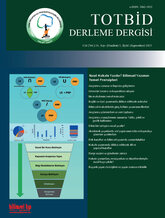
This review comprehensively addresses the development of research questions and hypotheses, which are essential components of scientific studies. A research question serves as the cornerstone that defines the direction and purpose of a study. A well-structured research question must be clear, original, answerable, and testable. It should be developed through a literature review and aim to address knowledge gaps. Models such as population, intervention, comparator, outcome (PICO), sample, phenomenon of interest, design, evaluation, research type (SPIDER), and feasible, interesting, novel, ethical, relevant (FINER) can be used to structure research questions and enhance their scientific value and applicability. Hypotheses are testable scientific propositions related to the research question, classified as null (H₀) and alternative (H₁). An effective hypothesis should be clear, testable, logical, and measurable. The review also discusses common mistakes in formulating research questions and hypotheses and offers practical strategies to avoid them. Supported by examples from various disciplines, this work aims to guide researchers in developing well-founded, effective, and feasible research questions and hypotheses for their own projects.